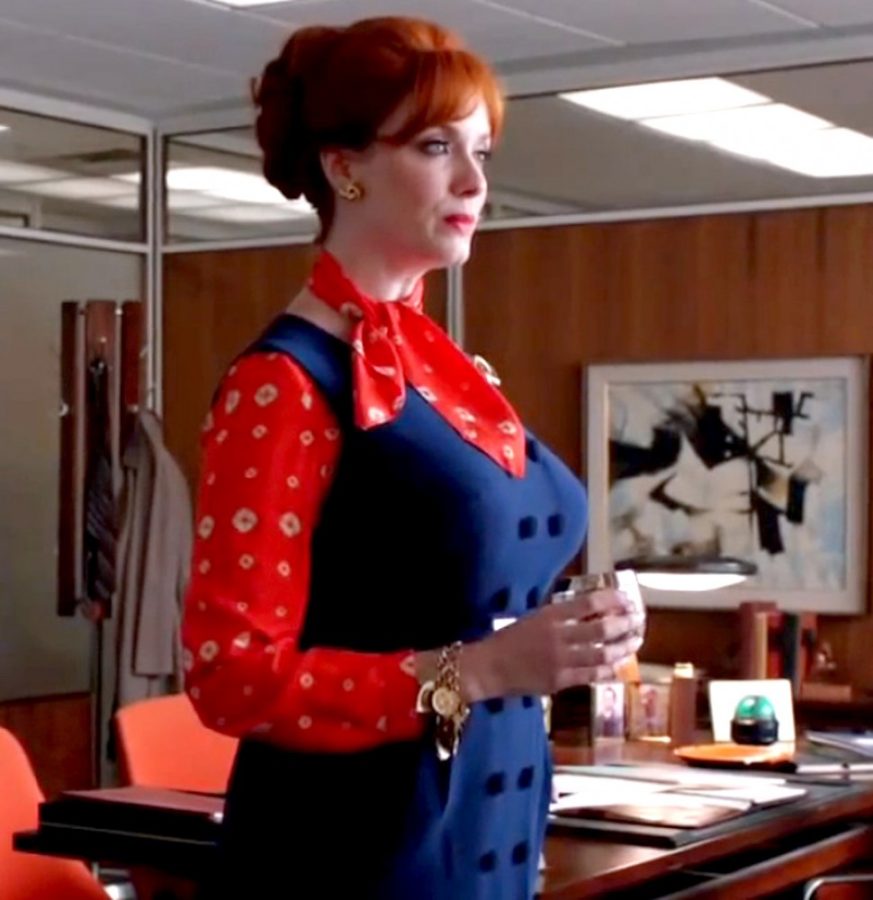Those who listened carefully to President Barack Obama’s State of the Union address last November may have detected a reference to the award-winning series “Mad Men.”
“A woman deserves equal pay for equal work,” Obama said. “It’s time to do away with workplace policies that belong in an episode of ‘Mad Men.’”
Since that time, the dark drama about an advertising agency in 1960s America has also been used in the rhetoric of two other Democratic politicians.
Kentucky’s secretary of state, Alison Grimes, used the show as a slanderous metaphor in a spitfire speech during a picnic event she attended on Aug. 2.
“If Mitch McConnell were a TV show, he would be ‘Mad Men,’ treating women unfairly, stuck in 1968 and ending this season,” Grimes said. McConnell is the current Senate minority leader and Grimes’ main opponent as she enters Kentucky’s Senate race this election year.
Grimes went on to highlight the 37-year age gap between herself and McConnell, which is perhaps a further indication of her attempt to associate McConnell with the old-fashioned, misogynistic, white-male attitudes that are customary on the show.
Florida Rep. Debbie Wasserman Schultz is also guilty of a “Mad Men” shout out when she posted a spiteful tweet ridiculing a Republican senator from Texas.
“Marco Rubio’s vision of the ‘future’ sounds more like something I’d watch on #MadMen,” the congresswoman stated on July 23.
Why do Democrats want to brand themselves with a show featuring excessive chain-smoking and adulterous affairs?
Since its debut in 2007, “Mad Men” has earned a reputation for its minimalist plot lines, three-dimensional characters and existential themes. The situations and incidents depicted throughout its seven seasons can be so ambiguous and surreal that viewers may want to gravitate toward more digestible elements — such as the show’s historical accuracy of portraying a pre-feminist workplace environment.
“Why is it that every time a man takes you out to lunch around here, you’re dessert?” asked Peggy Olson, in a season one episode appropriately titled “Ladies Room.”
The character Peggy Olson exemplifies the evolution of female integrity in a male-dominated world. She begins the series as a pathetic, mousy secretary too insecure to fend off an account executive from taking her virginity in the first episode.
Then, she matures into a confident, unapologetic copy writer, determined to make the same money as her male counterparts. It is a storyline incredibly relevant today when there are pieces of legislation still passing through Congress attempting to minimize the wage gap between genders.
The Obama administration has made great strides at identifying itself with the issue of gender discrimination. When he first came to office in January 2009, the first bill Obama signed into law was the Lilly Ledbetter Fair Pay Act, which amended the Civil Rights Act of 1964 by allowing employees to file unfair pay complaints past the 180-day parameter.
“Growing inequality — of income, wealth and opportunity — is the economic, political and moral issue of our time,” wrote Walter Isaacson in an editorial to Time magazine. Isaacson went on to state that the Obama administration is running out of accomplishments to glorify as the 2016 election slowly edges near, and should focus on the one issue it’s always shown a commitment to amending: gender inequality.
“Mad Men” makes for the perfect case study that Democrats can use in showing the societal progress their party is spearheading. Peggy Olson becomes the paragon of the feminist ideal, and Democrats can use her as a tool to sway voters in keeping Republicans out of the White House.
The show itself has begun to reciprocate the political activism. Christina Hendricks, who portrays the brass and sassy Joan Harris, recently appeared as her character in an online video parodying the anachronistic customs of 1960s culture. In one scene, she is seen trying to shove paper into a computer, as if it were a typewriter.
“If we’re going to run our business like it’s the 1960s,” said Hendricks in the video, “I’m going to act like it.”
Hendricks was blatantly commenting on the prejudices that still exist in the American workplace. According to a 2013 report from the World Economic Forum, the U.S. ranks 23rd on the global scale of gender pay gap.
With “Mad Men” ending after seven seasons, the destinies of characters like Peggy and Joan will be enigmatic. If the show was to follow the course of history, we’re made to believe that they’ll remain unempowered by a patriarchal society.
Perhaps the Democrats are trying to create the future that Peggy and Joan will never experience: a world where a woman’s talents outshine her hairdo.
Follow Kevin Reagan @KevinReaganUA









